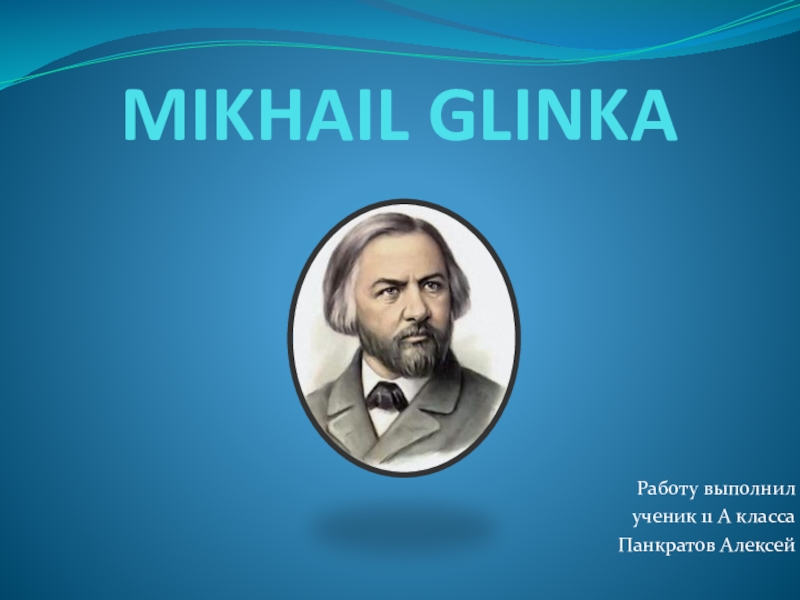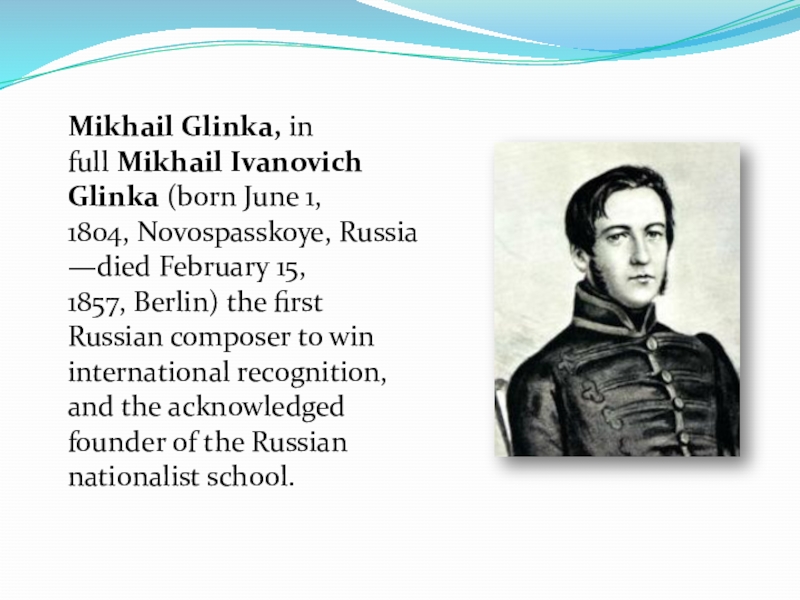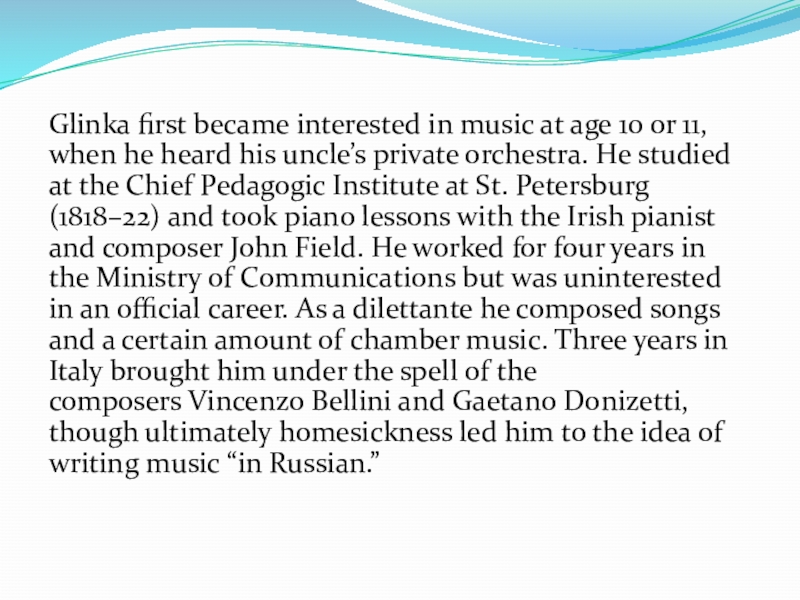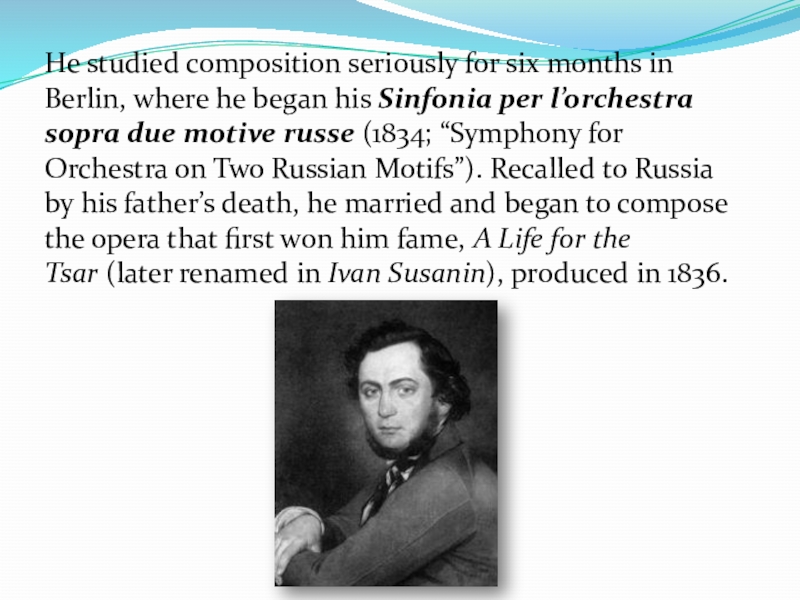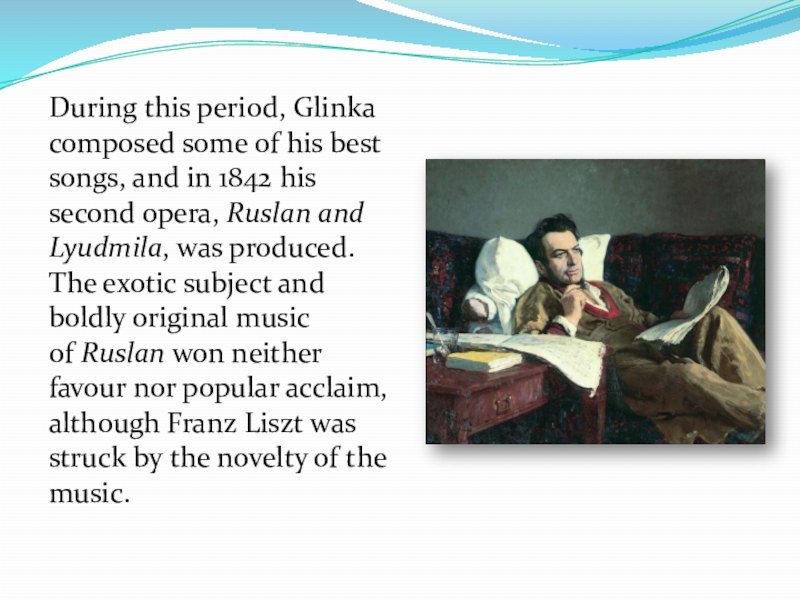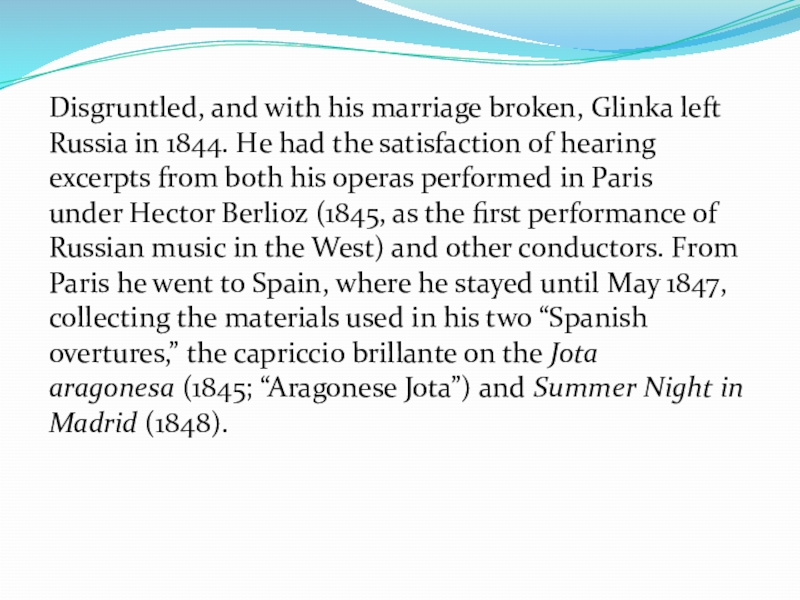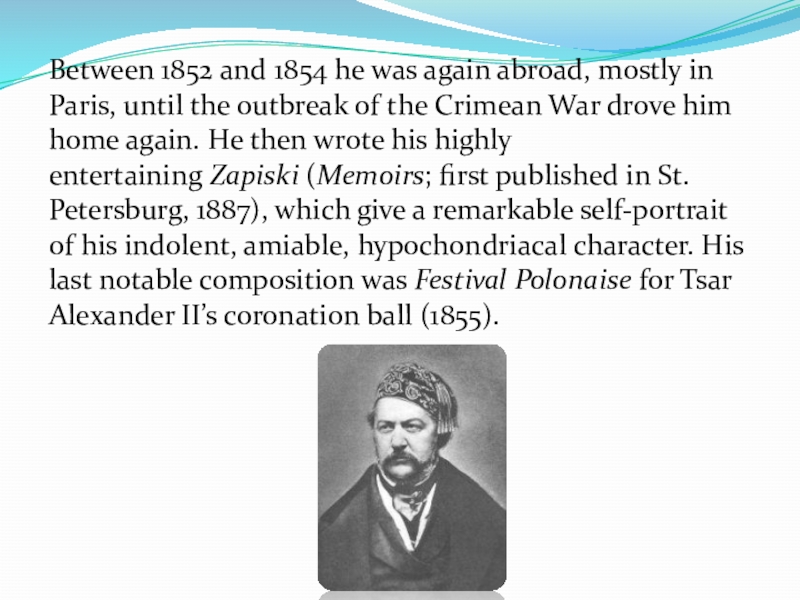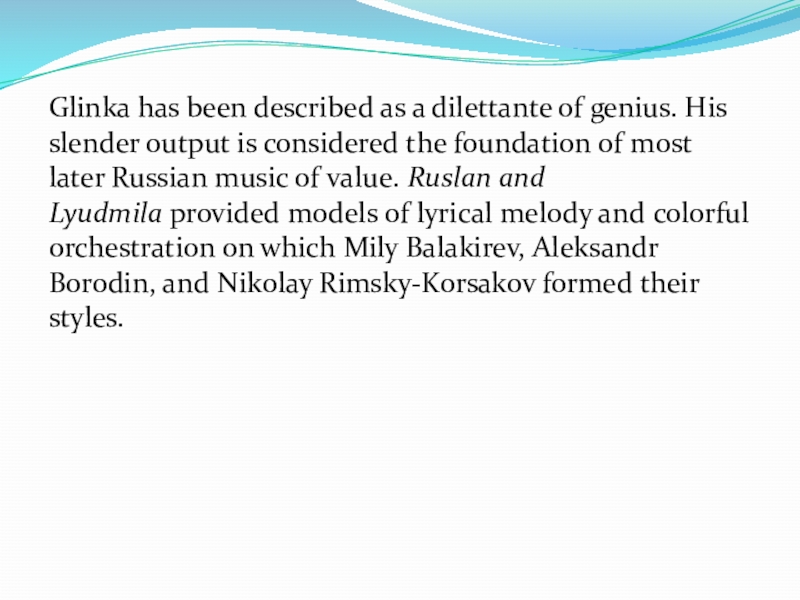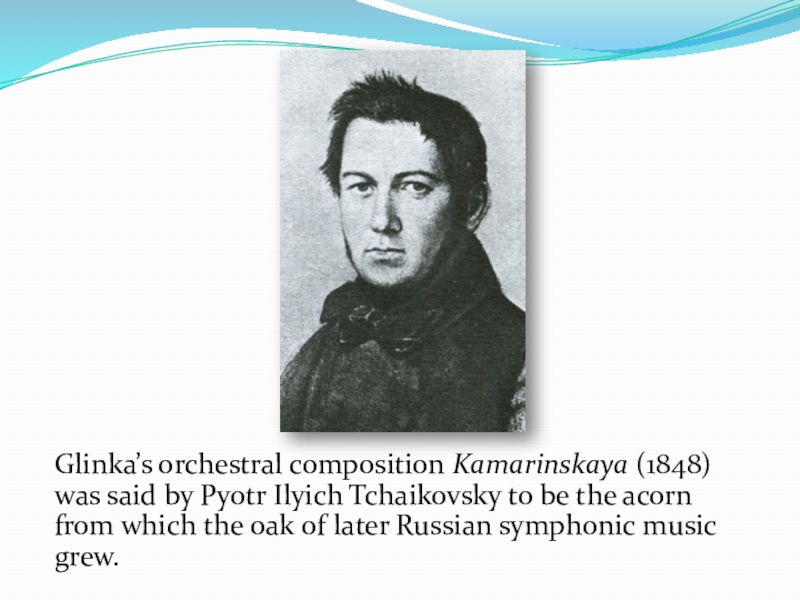- Главная
- Разное
- Образование
- Спорт
- Естествознание
- Природоведение
- Религиоведение
- Французский язык
- Черчение
- Английский язык
- Астрономия
- Алгебра
- Биология
- География
- Геометрия
- Детские презентации
- Информатика
- История
- Литература
- Математика
- Музыка
- МХК
- Немецкий язык
- ОБЖ
- Обществознание
- Окружающий мир
- Педагогика
- Русский язык
- Технология
- Физика
- Философия
- Химия
- Шаблоны, фоны, картинки для презентаций
- Экология
- Экономика
Презентация, доклад на тему Mikhail Glinka, презентация по английскому языку Sounds of Music
Содержание
- 1. Mikhail Glinka, презентация по английскому языку Sounds of Music
- 2. Mikhail Glinka, in full Mikhail Ivanovich Glinka (born June 1, 1804, Novospasskoye, Russia—died February
- 3. Glinka first became interested in music at age 10
- 4. He studied composition seriously for six months
- 5. During this period, Glinka composed some of
- 6. Disgruntled, and with his marriage broken, Glinka
- 7. Between 1852 and 1854 he was again
- 8. Glinka has been described as a dilettante
- 9. Glinka’s orchestral composition Kamarinskaya (1848) was said by Pyotr Ilyich
Mikhail Glinka, in full Mikhail Ivanovich Glinka (born June 1, 1804, Novospasskoye, Russia—died February 15, 1857, Berlin) the first Russian composer to win international recognition, and the acknowledged founder of the Russian nationalist school.
Слайд 2Mikhail Glinka, in full Mikhail Ivanovich Glinka (born June 1, 1804, Novospasskoye, Russia—died February 15, 1857, Berlin) the first Russian
composer to win international recognition, and the acknowledged founder of the Russian nationalist school.
Слайд 3Glinka first became interested in music at age 10 or 11, when he
heard his uncle’s private orchestra. He studied at the Chief Pedagogic Institute at St. Petersburg (1818–22) and took piano lessons with the Irish pianist and composer John Field. He worked for four years in the Ministry of Communications but was uninterested in an official career. As a dilettante he composed songs and a certain amount of chamber music. Three years in Italy brought him under the spell of the composers Vincenzo Bellini and Gaetano Donizetti, though ultimately homesickness led him to the idea of writing music “in Russian.”
Слайд 4He studied composition seriously for six months in Berlin, where he
began his Sinfonia per l’orchestra sopra due motive russe (1834; “Symphony for Orchestra on Two Russian Motifs”). Recalled to Russia by his father’s death, he married and began to compose the opera that first won him fame, A Life for the Tsar (later renamed in Ivan Susanin), produced in 1836.
Слайд 5During this period, Glinka composed some of his best songs, and
in 1842 his second opera, Ruslan and Lyudmila, was produced. The exotic subject and boldly original music of Ruslan won neither favour nor popular acclaim, although Franz Liszt was struck by the novelty of the music.
Слайд 6Disgruntled, and with his marriage broken, Glinka left Russia in 1844.
He had the satisfaction of hearing excerpts from both his operas performed in Paris under Hector Berlioz (1845, as the first performance of Russian music in the West) and other conductors. From Paris he went to Spain, where he stayed until May 1847, collecting the materials used in his two “Spanish overtures,” the capriccio brillante on the Jota aragonesa (1845; “Aragonese Jota”) and Summer Night in Madrid (1848).
Слайд 7Between 1852 and 1854 he was again abroad, mostly in Paris,
until the outbreak of the Crimean War drove him home again. He then wrote his highly entertaining Zapiski (Memoirs; first published in St. Petersburg, 1887), which give a remarkable self-portrait of his indolent, amiable, hypochondriacal character. His last notable composition was Festival Polonaise for Tsar Alexander II’s coronation ball (1855).
Слайд 8Glinka has been described as a dilettante of genius. His slender
output is considered the foundation of most later Russian music of value. Ruslan and Lyudmila provided models of lyrical melody and colorful orchestration on which Mily Balakirev, Aleksandr Borodin, and Nikolay Rimsky-Korsakov formed their styles.
Слайд 9Glinka’s orchestral composition Kamarinskaya (1848) was said by Pyotr Ilyich Tchaikovsky to be the acorn
from which the oak of later Russian symphonic music grew.
